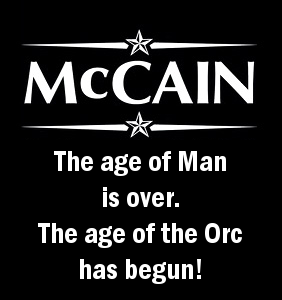Here’s something I wrote a little more than a month ago about principled libertarians who have thrown in for the Ron Paul campaign:
As for rising libertarian consciousness, or openness to libertarian ideas, I'd like to believe that it's true, but I'm not especially convinced. If it is true, though, I would suggest that absolutely the most urgent thing to do is to start those conversations and unhitch them as quickly and as thoroughly as possible from the Ron Paul train, because we have a very short window of time — somewhere in the vicinity of 1-3 months, depending on the breaks — before Ron Paul's prospects in the primaries are completely decided. If nothing significant happens in that direction between now and then, then I think that a lot of money and a lot of organizational energy will disappear right into the same dark, lonely station where the Clark train, the Buchanan train, the Perot train, the Nader train, and the Dean train are sitting idle after all these election cycles. That'd be a shame, because, as much as I dislike some of what they're producing, they are certainly showing a lot of genuine organizational intelligence.
I’d say that recent news — Ron Paul’s next-to-last performances in early primaries, and the rippling effects of the recent brouhaha over the newsletters published under his imprimatur — is as good a reason as you could hope for for believing that time is up. Either the Paulistas unhitch themselves now or they will be carried far away from their intended destination.
Yes, yes, the New Republic article is a sloppy hatchet piece, which mixes genuinely fucked-up shit (such as the vile racism and authoritarianism of the law-n-order pieces that appeared in the early 1990s) together with bogus smears (such as the attempt to use longstanding criticism of U.S. military support for the Israeli government as evidence for a charge of anti-Semitism). And yes, yes, Ron Paul’s relationship to the newsletters was weird and there is some complicated and ongoing movement history that makes the full story much less straightforward than Kirchick’s narrative would imply. But that genuinely fucked-up shit is genuinely fucked-up shit. If you’re interested in an overview of the authorship question and of some of the salient movement history, you can see the article and comments at Kn@ppster (2007-01-08), and also Wirkman Netizen (2007-01-09). As I see it the full story, once told tends to make Ron Paul a little less guilty than Kirchick claims, but much more guilty than his kneejerk defenders claim.
That’s a conversation well worth having, and perhaps I’ll join in in the future. But for the time being, the point that I’d like to stress is this: whatever the full, nuanced, correct understanding of the matter may be, there is no realistic chance whatsoever that the necessary nuance will fit into either person-to-person electoral outreach or political media commentary within the amount of time that remains. News media and politicking in the critical months of primary season just don’t provide a medium for that kind of nuanced discussion to happen. It just doesn’t have the bandwidth to get through anything much more complex than Google Ron Paul,
Ron Paul’s a crazy racist,
Is not,
Is so,
Your moms!
etc.
So Ron Paul’s chances in the Republican primaries, if he ever had any to begin with, are on death’s doorstep, and all that remains on this point are a number of damning associations with his name that radical libertarians will not be able to dispel or to dissociate within the electoral forum. Those radical libertarians who have tried to use Ron Paul’s personality and campaign, warts and all, as an indirect means for educating people about and persuading them of anti-war and radical libertarian views had best give it up. Those radical libertarians who have tried to use mix with Ron Paul’s other supporters as a source for new recruits had best give up on trying to work together with the Paulistas within the context of Ron Paul’s campaign, and start working on poaching them from the campaign into other projects. Any further effort at bolstering the campaign is, as far as I can see, going to be wasted effort. The campaign is just about dead in the water, and ongoing libertarian efforts to talk it up are, as far as I can tell, very unlikely to educate anyone about the real nature of libertarianism. What they are far more likely to do is undermine any efforts to educate people about what genuine radical libertarianism entails. If these efforts are not simply ignored, then what they will accomplish is not mainly to push more anti-libertarians and not-yet-libertarians towards libertarianism, but rather to push them towards associating radical libertarianism with the reactionary bigotry of the hard Right. What would be far more productive is a concerted effort to break that association, by publicly dissociating from and criticizing the Ron Paul campaign, on the grounds of clear, public, and unapologetic statements of radical libertarian principles.
Now, I believe firmly in honesty, and in open radicalism, and I think that if an extreme
position is correct, then public indignation at it, or smears of it, are ever a good reason to abandon, or moderate, or dissemble about your position. You just keep at it, against wind and tide, until your intransigence and the rightness of your position have succeeded in shifting the debate. But when we move away from the moral question of fidelity to principle, and to the strategic question of supporting a particular candidate warts and all,
the issue is no longer one of honesty but rather one of whether your chosen means are actually well-suited to your ends. If the hope is to convince non-libertarians through education and persuasion, then you’re not likely to promote that goal through boosterism for Ron Paul’s good name and electoral prospects, after his electoral campaign has become moribund and his name is no longer especially good. If Ron Paul boosterism ever was an effective way to get things done, it no longer is, and it’s time to find a better way.


